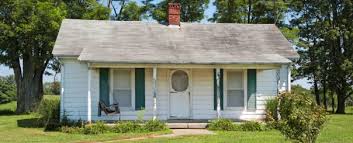Young people looking to purchase their first home are often put off by the cost involved, including the downpayment and the mortgage process. Fixer-uppers can be a perfectly viable option as long as you’re up to handling the extensive renovations that go along with buying a house in a state of disrepair. Bear in mind that buying a fixer-upper can end up being more of a financial burden than you’d anticipated. Some turn out to be the dreaded “money pit,” the house that always seems to have another problem. There are several things to consider carefully before choosing to take on a fixer upper project.
Location
You’ve probably heard that location is the most important factor when it comes to real estate. The same holds true for fixer uppers. Consider location first, since you’ll be fixing up the house. Once you’ve identified the area in which you want to live, begin searching for fixer uppers. There are real estate agents who specialize in these kinds of properties. Once you’ve talked to lenders and been pre-qualified for a home loan, spend some time on the internet looking for agents who specialize in fixer uppers. Homes for sale in Naperville, Illinois, have an average list price of $450,000.
Assess your handyman skills
Think carefully about what you’re proposing, and assess your skills honestly and objectively. Fixer uppers are almost always a challenge, and you could be facing a job that requires tools and experience that you may not possess. You’re going to need power drills, sanders, jigsaws and a host of other robust power tools. Crowbars, a mallet, joists and a full set of reliable hand tools are also essential. Then there’s the time commitment. Remember, this is more than two or three weekends of work. You could be renovating and fine tuning for years to come until you get it just right. There are many examples of eager, over-optimistic buyers who found out too late they’d bitten off more than they could chew. Don’t pursue such an opportunity until you’ve had a home inspection done and have a good idea of what fixes are necessary and whether they’re within your capabilities.
A big investment
Buying the house is only the first step. There’s a considerable ongoing investment involved in a fixer upper, which means you’ll need to have a considerable nest egg socked away for the work that’s yet to come. The home inspection should help you determine whether your finances are up to the challenge or not. Make a careful list of everything that needs to be repaired, get estimates for each, and then decide whether it’s within your reach.
What are your long-term plans?
People who purchase a fixer upper are usually committed to it for a period of years. If your job may require you to move at any given time, you’ll probably want to pass on a home that’ll need a lot of money and time to fix up. If for some reason you’re called on to relocate while you’re renovating, you could lose a lot of money if you find yourself having to sell.
Priorities
The first projects to tackle will depend largely on what the inspector has to say. Often, windows, flooring, electricity and roofing are priorities when moving into a project home. If there are serious structural, foundation or plumbing problems, you’re probably better off continuing your search. Once you’ve completed renovations, check out home values and prices in your area. You might consider selling if it’s a seller’s market and you can be pretty sure of getting maximum value for your investment and the sweat equity that went into it.
Purchasing a new home is always a big investment. Between the cost and the improvements you make, a fixer upper can be a tremendous investment if the market’s in your favor. Think of yours as a big investment in your financial future.
Courtesy of Pixabay.com.







